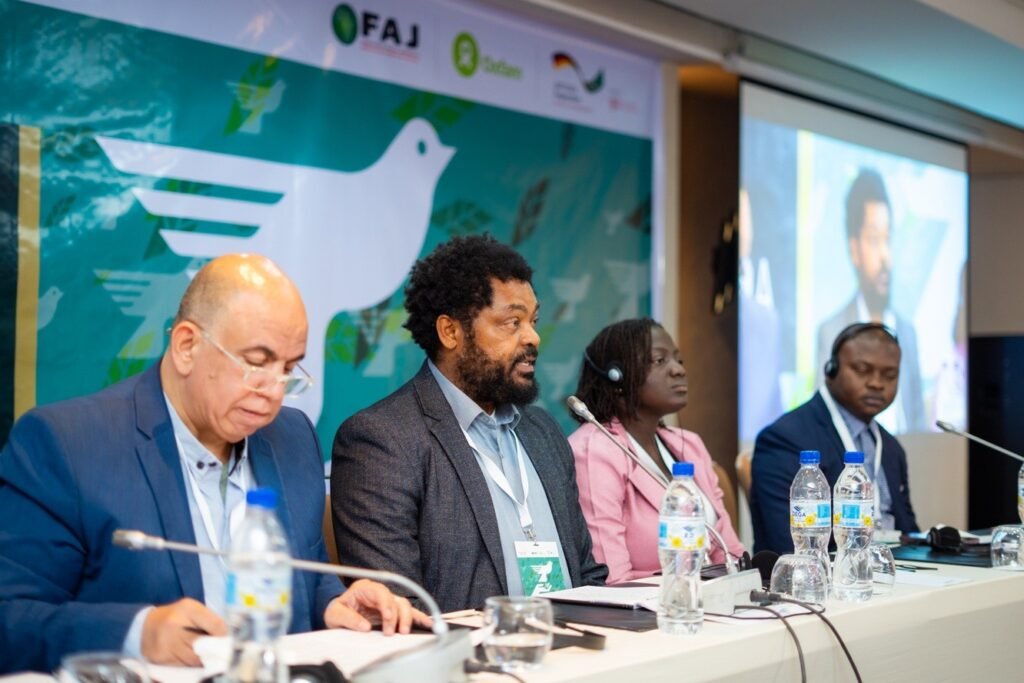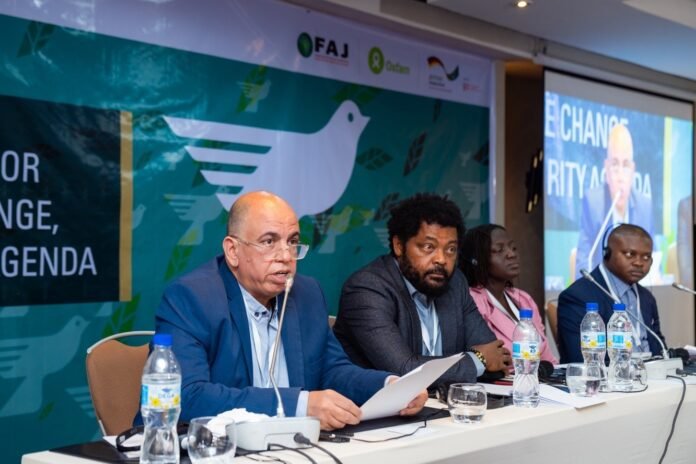Addis Ababa, Ethiopia

Ahmed Sahid Nasralla, Immediate Past President of the Sierra Leone Association of Journalists (SLAJ) and member of the Steering Committee of the Federation of African Journalists (FAJ), has urged African governments, partners, and the African Union to invest in public interest journalism as a critical tool in advancing climate accountability and justice.
Representing SLAJ and Sierra Leone at the opening day of the Pre-Summit Forum to the Second Africa Climate Summit (ACS2) in Addis Ababa, Nasralla stressed that without an independent and well-resourced media, Africa cannot achieve climate justice.
“If climate change is the greatest challenge of our time, then investigative journalism is one of the greatest tools we have to ensure climate finance delivers for our people,” Nasralla told the forum.
He highlighted Sierra Leone’s own experience with the 2017 Freetown landslide and recurring floods as evidence of how poor governance, illegal logging, and weak land management exacerbate the effects of climate change. He called for investment in independent media and mechanisms like Sierra Leone’s newly launched National Fund for Public Interest Media (NaFPIM), which recently awarded grants to 14 media houses for in-depth reporting, including on climate change.
Nasralla also emphasised the need for continuous training and capacity building for journalists so they remain knowledgeable on climate change, climate finance, climate justice, and just transition issues.
He urged participants not to limit focus to mainstream media, which shapes policy debates largely at the urban level, but also to recognise the crucial role of digital media and community media.
“Community media is essential in influencing behavioural change at the grassroots, speaking the language of the majority of the population, especially in rural areas,” he said.
Nasralla further highlighted the role traditional leaders — chiefs, clergy, and Muslim clerics — can play in raising awareness and educating their congregations on climate change.
He also called for stronger protection for journalists, especially those reporting on climate issues from fragile and conflict-affected states, where risks are high.
Finally, he urged regional collaboration in climate reporting, stressing that stories must be told from multiple perspectives: governments, policymakers, funders, NGOs, researchers, vulnerable groups, and affected communities. “We need trusted collaboration across all stakeholders to tell Africa’s climate story fully and fairly,” he concluded.




